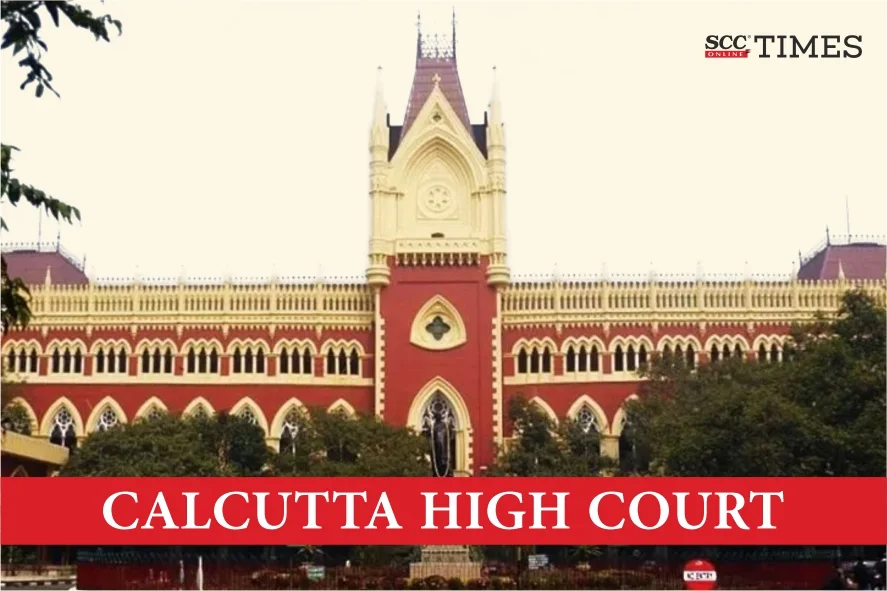Calcutta High Court: A petition was filed by the State of West Bengal under Section 482 read with Section 401 of the Code of Criminal Procedure, 1973, and Section 528 read with Section 442 of the Bharatiya Nagarik Suraksha Sanhita (BNSS), 2023 challenging an order passed by the Additional Chief Judicial Magistrate (ACJM) of Baruipur, South 24-Parganas, dated 05-10-2024, in connection with a case wherein a prayer for conducting the post mortem examination in presence of a Judicial Magistrate at Mominpur Police Morgue Hospital on 06-10-2024 was turned down. Tirthankar Ghosh, J., directed the person of the deceased be escorted by the police authorities with proper documentation including the guidelines laid down by Swasthya Bhawan/Medical Council of West Bengal and be handed over by 11.45 A.M. on 07-10-2024 to Dr. Ajoy Mallick, Medical Superintendent of AIIMS, Kalyani.
The Court remarked that “If the infrastructure is available, the postmortem examination 5 will be conducted at AIIMS, Kalyani. In case there is some deficiency in the infrastructure, the Superintendent of JNM, Kalyani would be communicated immediately.”
A case was initially registered under Sections 137(2) and 140(3) of the BNSS, 2023, later saw the addition of Sections 103 and 238 of the BNSS, following developments in the investigation.
The case revolves around a critical issue concerning the post-mortem examination of a deceased individual whose father raised concerns regarding the impartiality of the examination. The father of the deceased requested that the post-mortem be conducted at a hospital supervised and controlled by the Central Government. This request was made to ensure transparency and instill confidence in the investigation. Initially, the State of West Bengal, through its investigating agency, had prayed before the ACJM to conduct the post-mortem at Mominpur Police Morgue Hospital in the presence of a Judicial Magistrate. However, this request was denied by the ACJM on 05-10-2024, prompting the State to file the present revision petition.
Counsel for the State of West Bengal submitted that while the State had the necessary infrastructure to conduct the post-mortem, they had accepted the father’s request to transfer the examination to a Central Government hospital to honor his concerns. Accordingly, the State sought an amendment to its original prayer, now requesting that the post-mortem be conducted at a Central Government Hospital, under the supervision of a Judicial Magistrate.
Counsel representing the father of the deceased supported this request to reinforce the need for the post-mortem to be conducted at Command Hospital, Kolkata. However, the Counsel representing the Union of India, consulted with the Command Hospital authorities, who expressed their inability to conduct the post-mortem due to certain limitations.
The Court carefully examined the case diary, and the materials produced by the State, particularly the inquest report. Upon review, the Court noted prima facie evidence suggesting that sexual offenses may have been committed against the deceased. The Court was of the opinion that the investigating agency should have included the appropriate legal provisions under relevant statutes pertaining to such offenses in their charges.
In light of the findings, the Court directed that the accused be produced before the Special Court under the Protection of Children from Sexual Offences (POCSO) Act, Baruipur, for further directions during the course of the investigation. This direction was aimed at ensuring that the investigation proceeded in accordance with the seriousness of the alleged offenses, with a focus on sexual assault.
The Court issued detailed directions for the post-mortem examination. It directed that the body of the deceased be escorted by police authorities with proper documentation and handed over to Dr. Ajoy Mallick at AIIMS, Kalyani, by 11:45 AM on 07-10-2024. If AIIMS lacked the necessary infrastructure, the Superintendent of JNM Hospital, Kalyani, was instructed to help so that the post-mortem could be conducted using their facilities, while the medical experts from AIIMS performed the examination.
Additionally, the Court made provisions for the parents of the deceased to observe the proceedings virtually if they so desired, or to be provided with a comfortable space outside the room where the post-mortem was being conducted. Furthermore, the Court emphasized that a Judicial Magistrate should be physically present during the post-mortem examination, underlining the Magistrate’s role as a monitoring authority in line with the provisions of the BNSS, 2023.
The Court highlighted the evolving role of Magistrates under the new BNSS framework, noting that while they do not interfere with investigations, they are empowered to monitor them. The Magistrate’s duties, as outlined in the BNSS, include overseeing key aspects such as conducting Test Identification (T.I.) parades, recording statements, supervising specimen signature collections, and obtaining voice and fingerprint samples.
[State of West Bengal v. Union of India, 2024 SCC OnLine Cal 9057, decided on 06-10-2024]
Advocates who appeared in this case:
Mr. Kishore Dutta, A.G., Mr. Debasish Roy, P.P., Mr. Rudradipta Nandy, A.P.P., Ms. Sanjana Saha, …for the petitioner/ State Mr. Dhiraj Trivedi, D.S.G.I., Mr. Bankim Pal … for the Union of India.
Mr. Billwadal Bhattacharyya, Mr. Chandan Kumar Saha, Mr. Gautam Sardar, Mr. Bhaskar Bhattacharyya, Mr. Apurbo Mondal, Mr. Dibakar Biswas, Mr. Raj Sharma, Mr. Pradip Kumar Mondal … for the Opposite Party No.2
Mr. Samim Ahmed, Mr. Chandan Hossain, Mr. Rajit Lal Moitra, Mr. Arnab Sinha, Mr. Arka Ranjan Bhattacharyya, Mr. Arya Bhattacharyya, Ms. Ambiya Khatun, Mr. Enamul Islam. … for the family members of the deceased.







